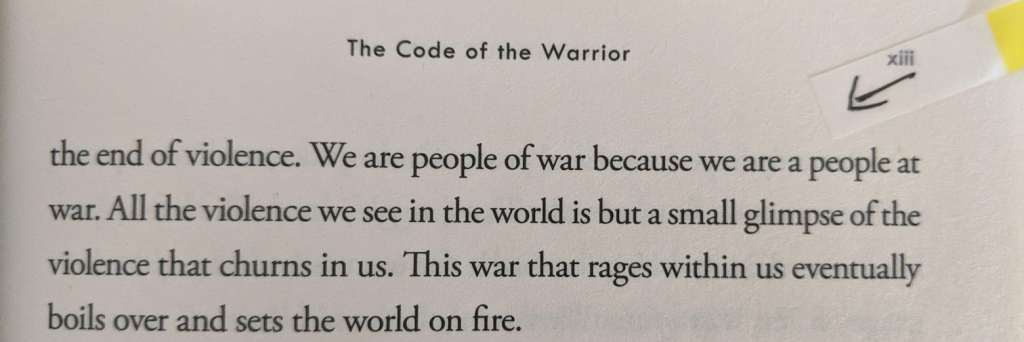Erwin McManus, in The Way of the Warrior, addresses something that has seemingly become epidemic in our society, just two years after the book went to print

As a person who has earned advanced degrees in cynicism, I can tell you that it is death to my soul and runs counter to the fruit of the Spirit (Galatians 5:22-23).
Romans 12:1-2 (ESV) 1I appeal to you therefore, brothers, by the mercies of God, to present your bodies as a living sacrifice, holy and acceptable to God, which is your spiritual worship. 2Do not be conformed to this world, but be transformed by the renewal of your mind, that by testing you may discern what is the will of God, what is good and acceptable and perfect.
And I can tell you that a closed mind and closed heart are the hiding place of the cynical spirit.
Remember, your brain is inherently lazy. It will retreat to whatever previous boundaries and patterns you’ve established from your past behavior. This is why it’s so important to always try something new. People who travel have significantly higher IQs than people who don’t. People who read authors with different perspectives become more open-minded and empathetic. You can start with small things: try new foods, meet new people, learn new language, consider a new idea, try a new approach.
In other words, break out of the routine you have established for yourself and force your mind to engage the new. This will begin to unlock opportunities and possibilities. This will open your mind to the beauty and wonder all around you.
-E. McManus in Tender Warrior, pp. 88-89
Discerning minds (the spiritually discerning) will apply this to their soul – their spiritual center – and will consistently be learning more about Jesus.
Isaiah 43:19 (ESV) 19Behold, I am doing a new thing; now it springs forth, do you not perceive it? I will make a way in the wilderness and rivers in the desert.




